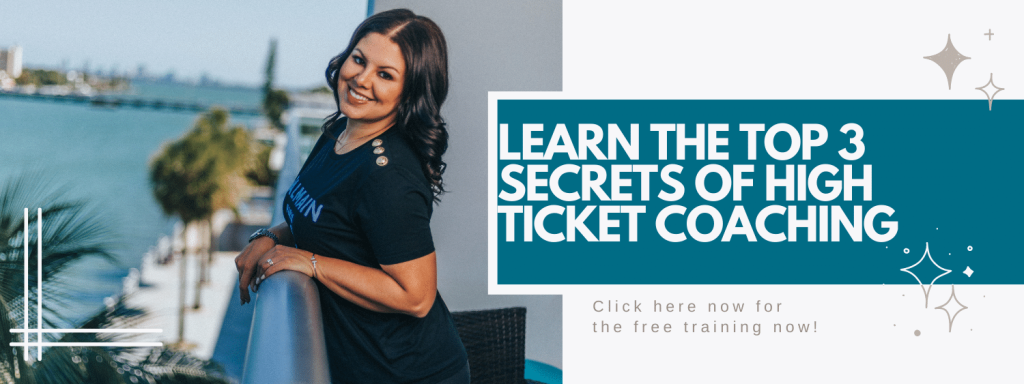
This post is all about life coach.
Life coach
Life coaching has become a popular way to help people reach their goals and find happiness and fulfillment in life.
It’s a journey of self-discovery that can lead to profound personal growth and transformation.
One would think that at some point you have it all figured out and getting help is not necessary.
But I have no interest in wasting time learning things the hard way. That is why even after millions in sales and having customers in 20+ countries, when my stress hit a new height while my dad was losing his battle to cancer, I was moving, and launching new products- a life coach kept me going.
It didn’t mean anything about me. It is OK to accept and seek out help.
Think about it…
You can’t tickle yourself. Why should you have to face all of life’s problems on your own?
You see…
At its core, life coaching is about empowering individuals to take control of their lives and achieve their aspirations.
A coach works with the client to identify their unique strengths, values, and goals, and provides guidance and support as they navigate their personal and professional challenges.
The benefits of life coaching can be substantial. By working with a coach, individuals can gain a greater understanding of themselves, develop a clearer sense of direction, increase their self-confidence, and boost their motivation and productivity.
Additionally, a coach can help individuals overcome obstacles and reach their goals more quickly and effectively.
The process of life coaching usually begins with an initial consultation. This is an opportunity for the client to share their story and discuss their goals and aspirations.
The coach will then develop a customized coaching plan to help the client reach their desired outcomes.
During each coaching session, the client and coach will work together to identify any obstacles and develop strategies to overcome them. The coach will provide guidance, feedback, and support, and hold the client accountable for their actions and progress.
In order to make the most of their life coaching experience, clients must be open, honest, and committed to the process. It’s important for them to be proactive, take an active role in their own development, and practice self-reflection and self-awareness.
Life coaching can be an incredibly rewarding and fulfilling journey. Whether you’re looking to improve your career, relationships, or overall sense of well-being, a life coach can help you achieve your dreams and live a more fulfilling life.
So, if you’re ready to take the next step in your personal growth and development, consider the benefits of life coaching.
Discover the secrets of life coaching, and embark on a journey to self-discovery and fulfillment today.
Top 30 questions to ask a potential life coach before working with them
- What is your experience as a life coach, and what is your coaching philosophy?
- What type of clients do you typically work with?
- How do you approach the coaching process and what can I expect from our sessions?
- Can you provide references or testimonials from past clients?
- What is your approach to setting and achieving goals?
- How do you handle challenging or difficult situations in coaching?
- Can you provide examples of successful outcomes from your coaching?
- What tools or techniques do you use to support clients in their growth and development?
- How do you measure success in coaching, and what metrics do you use?
- Can you work with clients from diverse backgrounds and experiences?
- How do you help clients with time management and prioritization?
- Can you provide resources or support outside of our coaching sessions?
- How do you handle confidentiality and ethical considerations in coaching?
- What is your availability and scheduling like?
- What is your pricing structure and payment options?
- How often do you meet with clients and what is the length of each session?
- What is your experience with remote or virtual coaching?
- Can you provide support for specific areas such as career, relationships, or health?
- How do you help clients overcome negative thought patterns or behaviors?
- How do you address issues of accountability and motivation in coaching?
- What is your approach to helping clients with stress management and self-care?
- Can you provide guidance for personal or spiritual growth and development?
- What is your experience with coaching for specific goals or challenges such as overcoming fears or building self-esteem?
- Can you help clients with work-life balance and managing burnout?
- What is your approach to conflict resolution and communication skills?
- Can you help clients with personal or professional transitions, such as career changes or relationship challenges?
- How do you handle coaching for individuals or groups?
- What is your approach to coaching for business or professional development?
- What is your availability for ongoing coaching or follow-up sessions?
- Can you provide any additional resources or support for your clients?
What is the difference between a therapist and a life coach
Therapists and life coaches are both professionals who can help individuals improve their lives and achieve their goals. However, there are key differences between the two professions, including their training, approach, and focus.
A therapist is typically a licensed mental health professional who has received extensive training in psychology and mental health. They typically focus on treating mental health issues, such as depression, anxiety, and trauma. They use a variety of techniques, including talk therapy, to help clients overcome emotional and mental health challenges.
A life coach, on the other hand, is a professional who helps clients achieve their goals and improve their overall quality of life. They may not have the same level of training or expertise as a therapist, but they are trained to help clients identify their strengths, set and achieve their goals, and overcome obstacles. They typically use a solution-focused, action-oriented approach to help clients reach their desired outcomes.
Another key difference between the two professions is the focus of their work. Therapists are typically focused on addressing mental health issues and helping clients overcome emotional or psychological challenges. Life coaches are focused on helping clients achieve their goals and improve their overall well-being, without necessarily addressing mental health issues.
In summary, while both therapists and life coaches can be valuable resources for individuals seeking personal growth and development, the training, approach, and focus of these professions differ. It’s important to consider these differences when choosing the right professional to support your needs.
How a life coach can help you achieve your business goals faster
A life coach can be a valuable resource for individuals who are looking to achieve their business goals faster.
Here are a few ways a life coach can help:
- Clarifying goals: A life coach can help you clarify your business goals, break them down into smaller, manageable steps, and create a roadmap for achieving them. They can help you identify what you want to achieve and create a plan to get there.
- Boosting motivation: Life coaches can help you stay motivated and focused on your goals, especially when you face challenges or setbacks. They can provide encouragement, support, and accountability to help you stay on track.
- Improving time management: A life coach can help you prioritize your tasks and manage your time more effectively, so you can get more done in less time. They can help you identify time-wasters and develop strategies for increasing productivity.
- Overcoming obstacles: Life coaches can help you overcome obstacles and navigate challenges that may be preventing you from achieving your goals. They can help you identify limiting beliefs, develop a growth mindset, and develop a resilient approach to challenges.
- Developing leadership skills: Life coaches can help you develop your leadership skills, such as communication, team-building, and strategic thinking. They can help you become a better leader and make a positive impact on your team and organization.
- Improving work-life balance: Life coaches can help you achieve a better work-life balance, so you can be more productive and fulfilled both at work and in your personal life. They can help you identify what’s important to you, set boundaries, and create a sustainable schedule.
In short, a life coach can help you achieve your business goals faster by providing support, guidance, and accountability.
By working with a life coach, you can develop a clear plan of action, overcome obstacles, and develop the skills you need to succeed in your business.
If you are a life coach, learn how to market your business here.
Why you can’t ignore having a life coach
Life coaching is a process of personal development that helps individuals achieve their goals and live their best lives.
As a life coach, your goal is to support your clients in discovering their innermost desires, strengths, and weaknesses, and to help them create a roadmap for achieving their goals and realizing their full potential.
Whether you are seeking to improve your personal or professional life, life coaching can be a powerful tool for self-discovery and fulfillment.
The first step in life coaching is to identify your goals and aspirations. This could be anything from finding a new job, to improving relationships, to finding happiness and contentment in your life.
Once you have a clear understanding of what you want to achieve, your life coach will work with you to create a plan of action. This may include setting specific, measurable goals and steps that you need to take.
Remember…
You can have it all and you can have it now!
This post was all about life coach.






